What Happens to Your Body When You Eat Kale
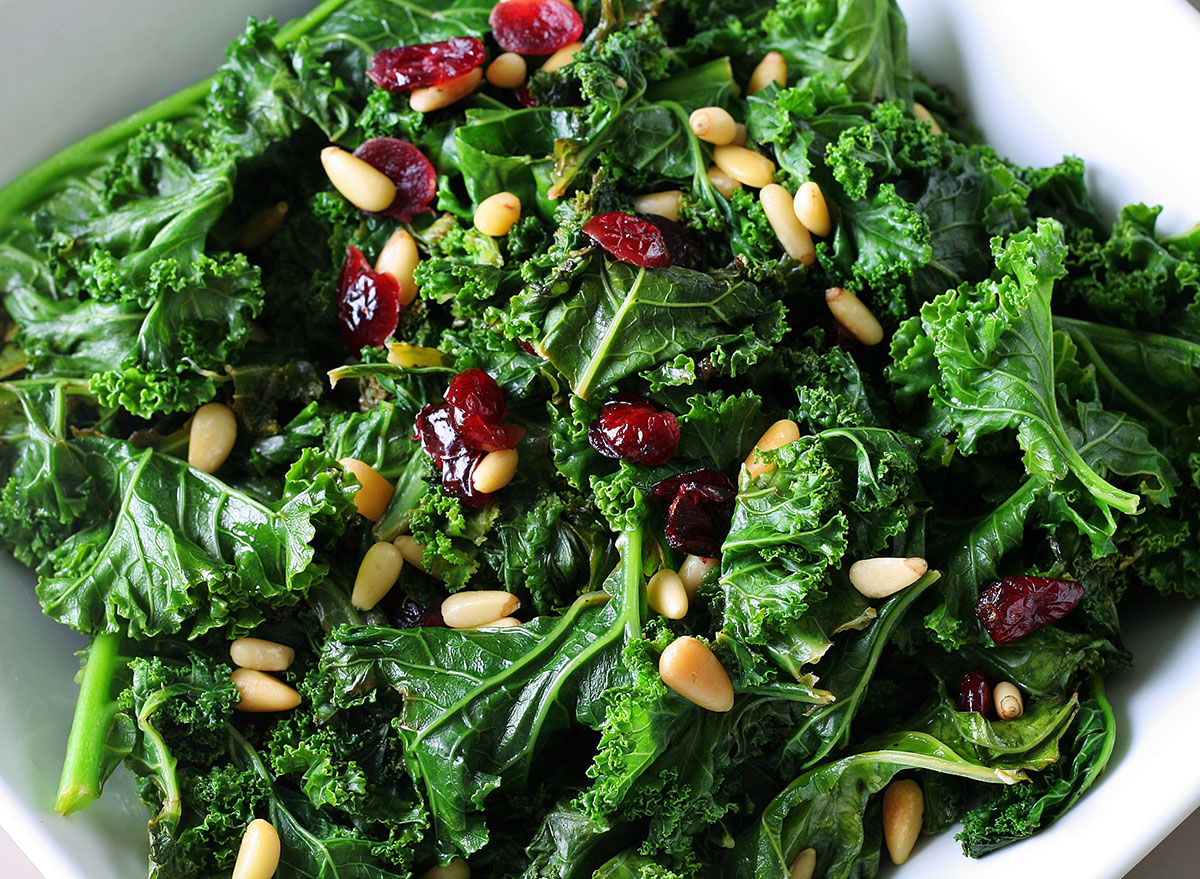
Hate to break it to you, but it’s true: kale really is a powerful superfood to have in your diet. Not only is it packed with all kinds of nutrients that are essential for your body’s help, but eating kale regularly can help your body’s stress and inflammation decrease while increasing your immune system, bones, and even your skin. But how exactly does kale do this? What happens to our body when you eat kale salads or even add kale to your breakfast scramble or hash?
We went asked a few experts about the specifics of what happens to your body when you eat kale, and how this powerful superfood really can make a huge difference in your health.
“Kale is super nutritious, that’s why it finds its way on main meals and salads,” Edie Reads, RD and chief editor of healthadvise.org. “What seems like an ordinary leafy green vegetable is a nutritional wonder, which is, of course, all-natural. This green and purple leafy vegetable belong to the same family as cabbage, broccoli, collards, even cauliflower. However, even among these nutritious vegetables, kale is still king.”
Here’s why many nutritionists would also back up the phrase “kale is king,” and for even more healthy tips, be sure to check out our list of The 7 Healthiest Foods to Eat Right Now.
Kale helps to fight off disease.
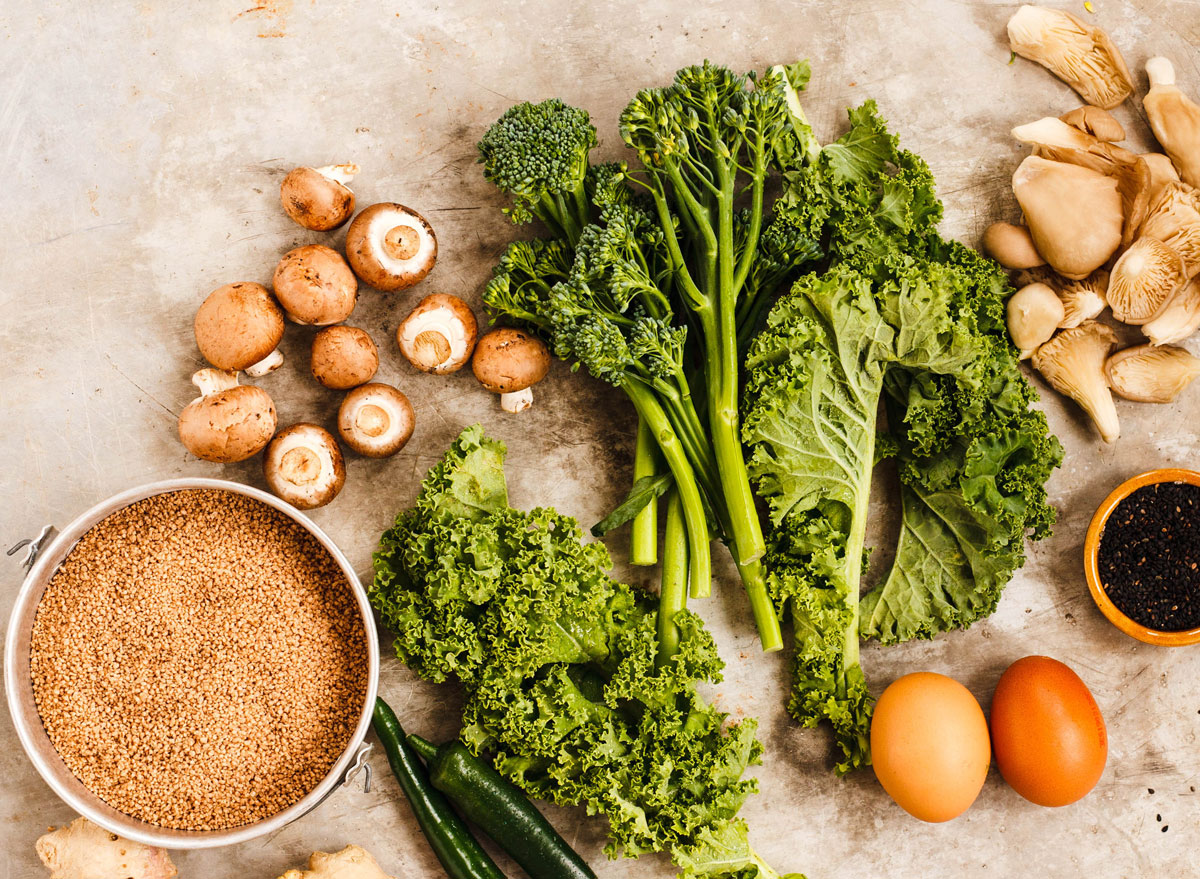
“Kale is very high in antioxidants including beta-carotene, vitamin C, and flavonoids,” says Lisa R. Young PhD, RDN, and the author of Finally Full, Finally Slim. “Antioxidants counteract oxidative damage and help to reduce the incidence of chronic diseases including heart disease and cancer.”
“Studies suggest that kale can help lower total cholesterol, therefore, lowering your risk for heart disease,” says Talia Segal Fidler, MS, HHC, AADP, and holistic nutritionist from The Lodge at Woodloch. “Kale has also been shown to help detoxification. Recent studies show that kale, as well, may be of value in the treatment of cancer, elevated blood lipids, and glaucoma.”
Here’s Why You Need Antioxidants In Your Diet—And How To Eat More Of Them.
You’ll get a boost in nutrients—including fiber!
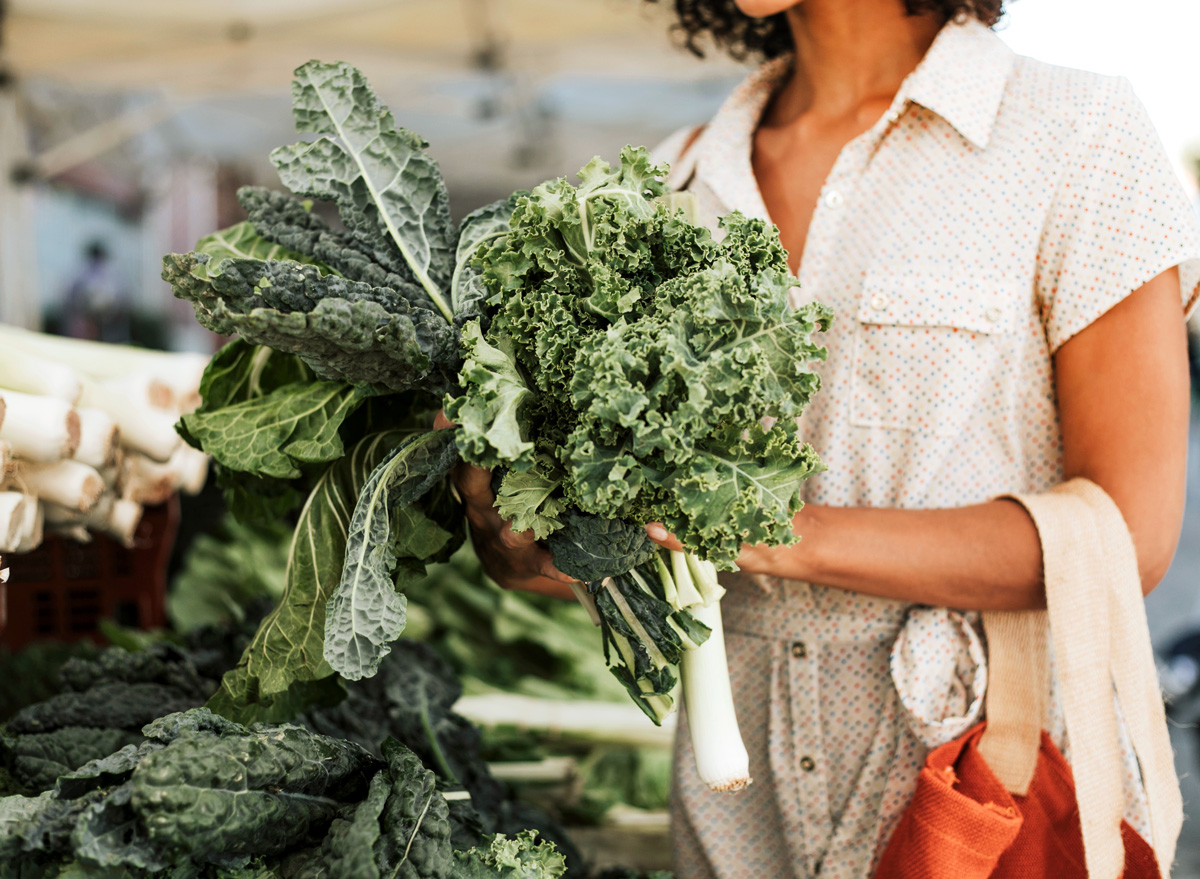
“Kale is one of the most natural micronutrient dense foods available,” says Dr. Rachel Paul, PhD, RD from CollegeNutritionist.com. “Key nutrients lacking in the American diet found in kale include potassium, calcium, and fiber. Potassium helps regulate water balance in the body, calcium helps build strong bones, and fiber helps keep us regulated (going to the bathroom).”
“The high level of Vitamin C in kales also adds to its antioxidant properties,” says Reads. “Just one cup of kales contains more vitamin C than an orange.”
Trista Best, MPH, RD, LD, with Balance One Supplements, also points out how one cup of kale not only provides your body with a sufficient amount of vitamin C, but also provides your body with two to six times the amount of vitamins A and K.
Get even more healthy eating tips straight to your inbox by signing up for our newsletter!
Kale makes your bones stronger.
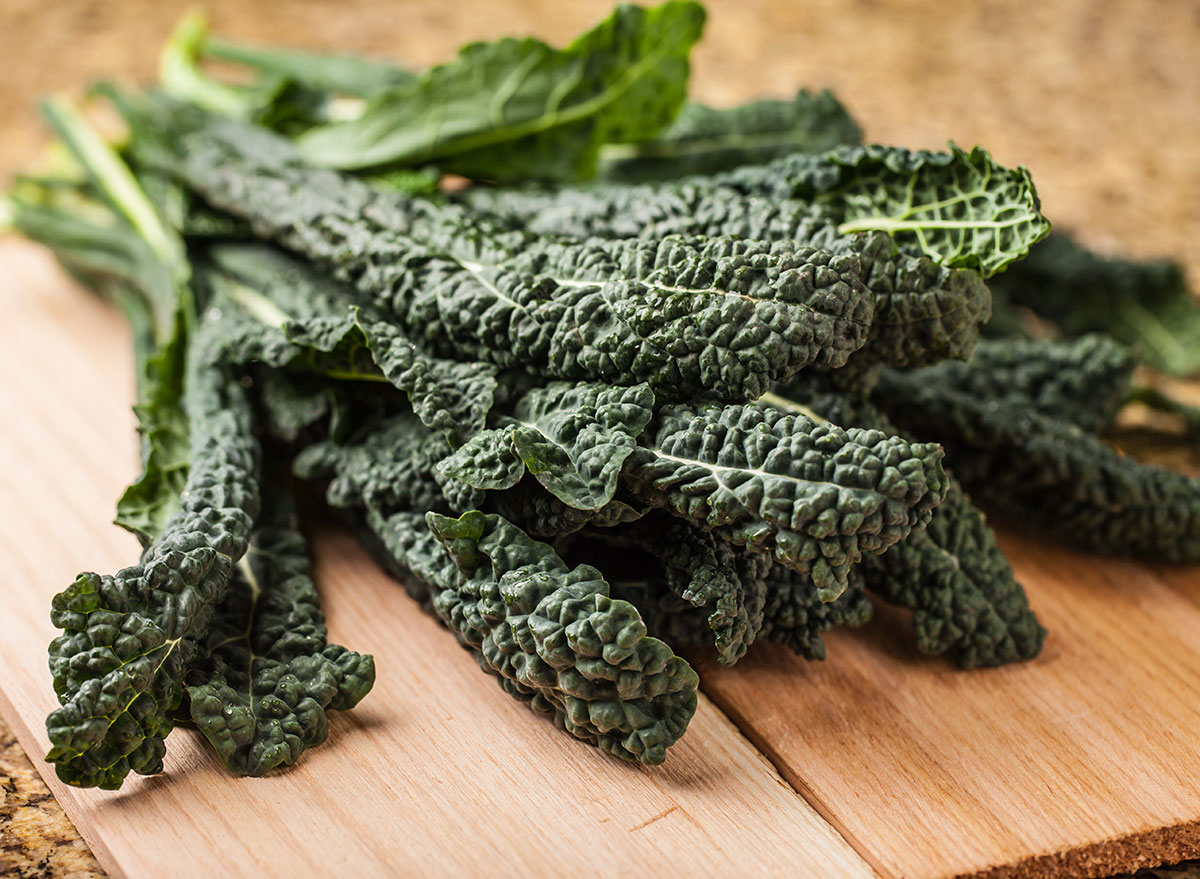
“Kale is a nutrient-dense leafy green that is low in calories. Whether you enjoy a kale salad, saute it in with your favorite pasta dish, or enjoy it another way, the fiber in kale can help fill you up,” says Sarah Schlichter, MPH, RDN of Bucket List Tummy. “Eating kale is also a great way to contribute to bone health. A cup of kale offers just under 200 milligrams of calcium, and ample Vitamin K, both of which are important parts of the puzzle in preventing osteoporosis.”
“Along with that, kale is one of the best-known sources of vitamin k,” says Megan Byrd, RD, from The Oregon Dietitian. “Vitamin k is essential for healthy bone growth, and for our bodies to be able to produce blood clots when we need them. If you’re taking a medication known to interfere with vitamin k and normal clotting, make sure to speak to your doctor before increasing your intake of kale and other leafy greens.”
Kale helps decrease inflammation and stress in your body.
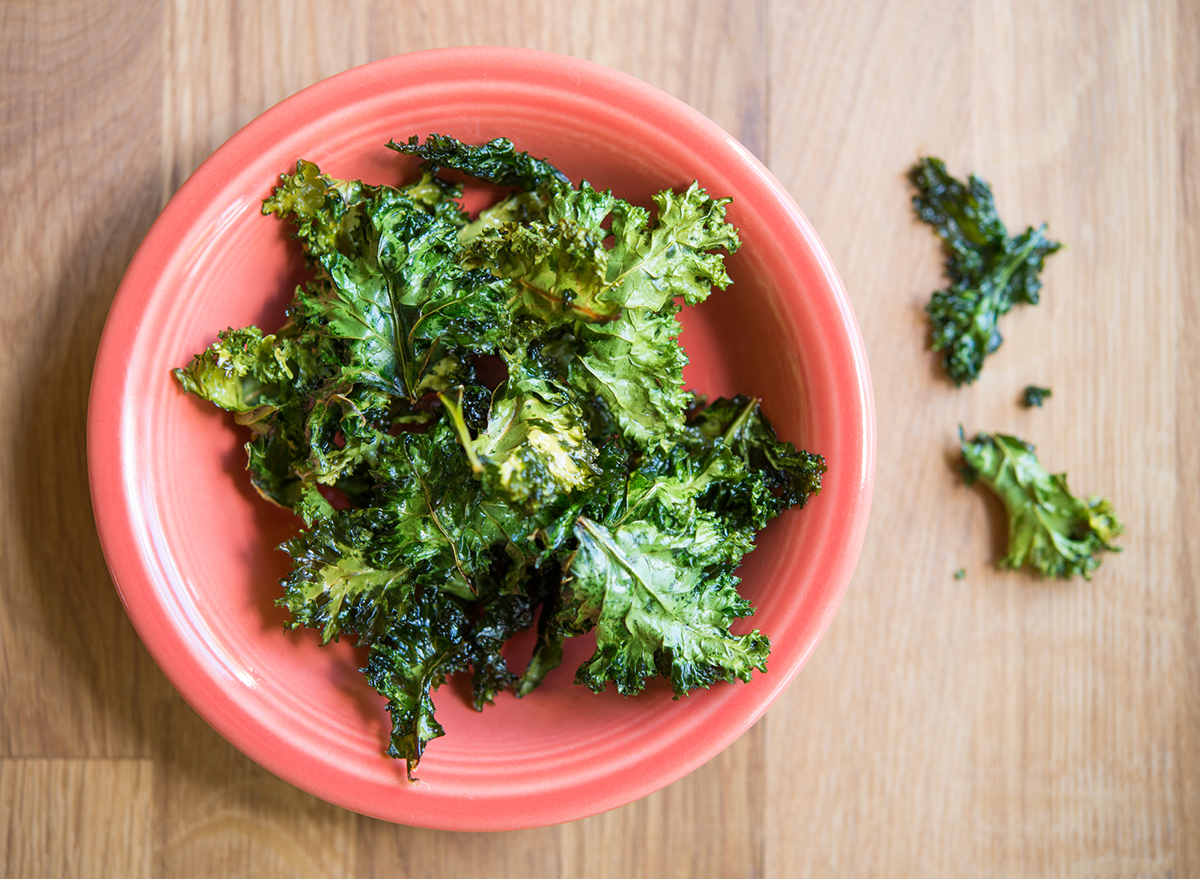
“Kale is also packed with plant compounds that act as antioxidants in the body,” says Best. “These work to actively reduce inflammation and oxidative stress that can damage the body’s cells and tissues leading to chronic conditions.”
“When you eat kale, you are consuming a wide range of healthful nutrients including beta carotene, potassium, magnesium, vitamin C, B-vitamins, Vitamin K, fiber, and more which help our body in a variety of ways,” says Ricci-Lee Hotz, MS, RDN at a Taste of Health and Expert at Testing.com. “Some examples of what kale can do with these great nutrients in your body include converting beta carotene which acts as an antioxidant in the body which can help decrease inflammation and stress on our cells and can also convert to Vitamin A which aids in healthy skin, hair, nails, eyes and immune health.”
Here are 14 Tips to Reduce Inflammation to Lose Weight Faster, According to RDs.
Kale helps to produce red blood cells.
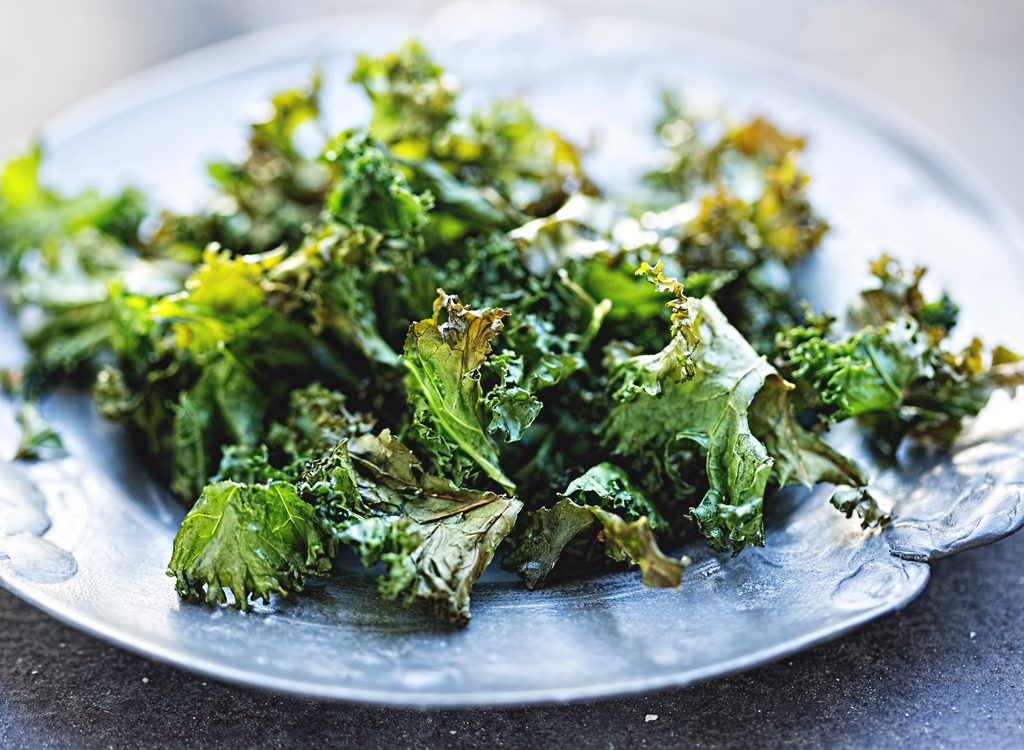
“Dark leafy greens like kale are nutritional powerhouses,” says Meghan Sedivy, RD, LDN from Fresh Thyme Market. “Greens like kale are packed with vitamin K helping the body to clot blood, iron which helps bring oxygen to vital organs throughout the body and produce red blood cells, magnesium to promote proper muscle and nerve function, and vitamin A for vision health. Kale is an earthy, versatile leafy green best used in soups, sauces, or sauteed into a side dish like farro or quinoa.”
Kale helps to detox your body.
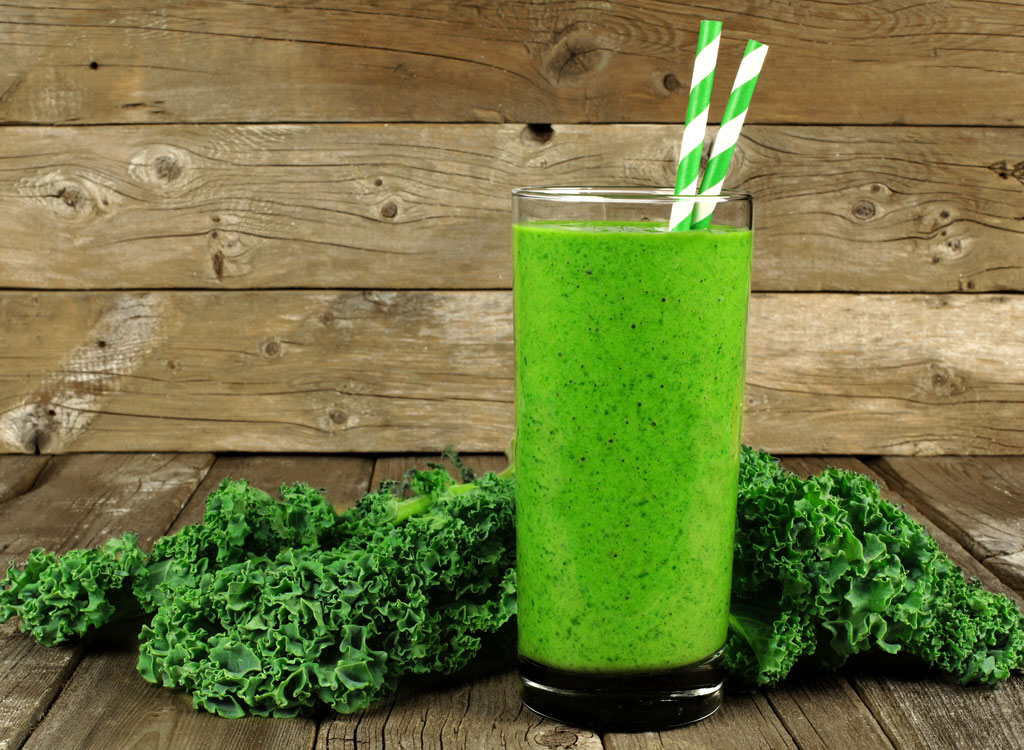
“Eating kales means filling your body with a proper balance of vitamins (A, B6, C, and K), fiber, iron, calcium, and antioxidants, including kaempferol and quercetin which rids your body of unwanted materials (free radicals) resulting from the normal body and environmental processes,” says Reads. “If left in the body, these toxins build up causing cell damage, inflammation, even diseases like cancer.”
Kale helps improve your skin health.
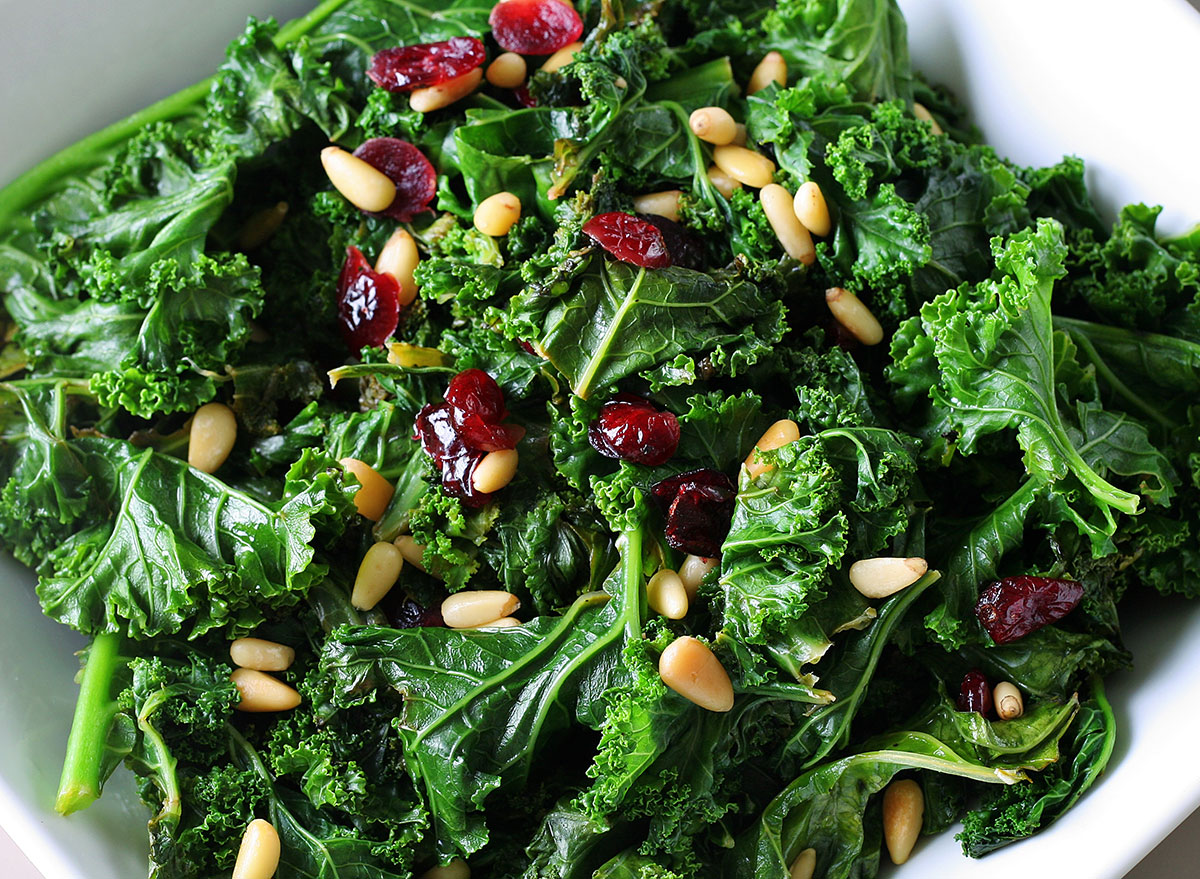
“Kale is a nutrient-rich vegetable and is a good source of vitamin C. Not only does vitamin C help support the immune system, but it is also essential for collagen synthesis,” says Amy Goodson, MS, RD, CSSD, LD, and author of The Sports Nutrition Playbook. “Adding kale to your day is a great way to support the health of your skin, cartilage, blood vessels, and healing of wounds!”
Now that we’ve fully convinced you to eat more kale, here are 15+ Best Healthy Kale Recipes for you to try at home!








